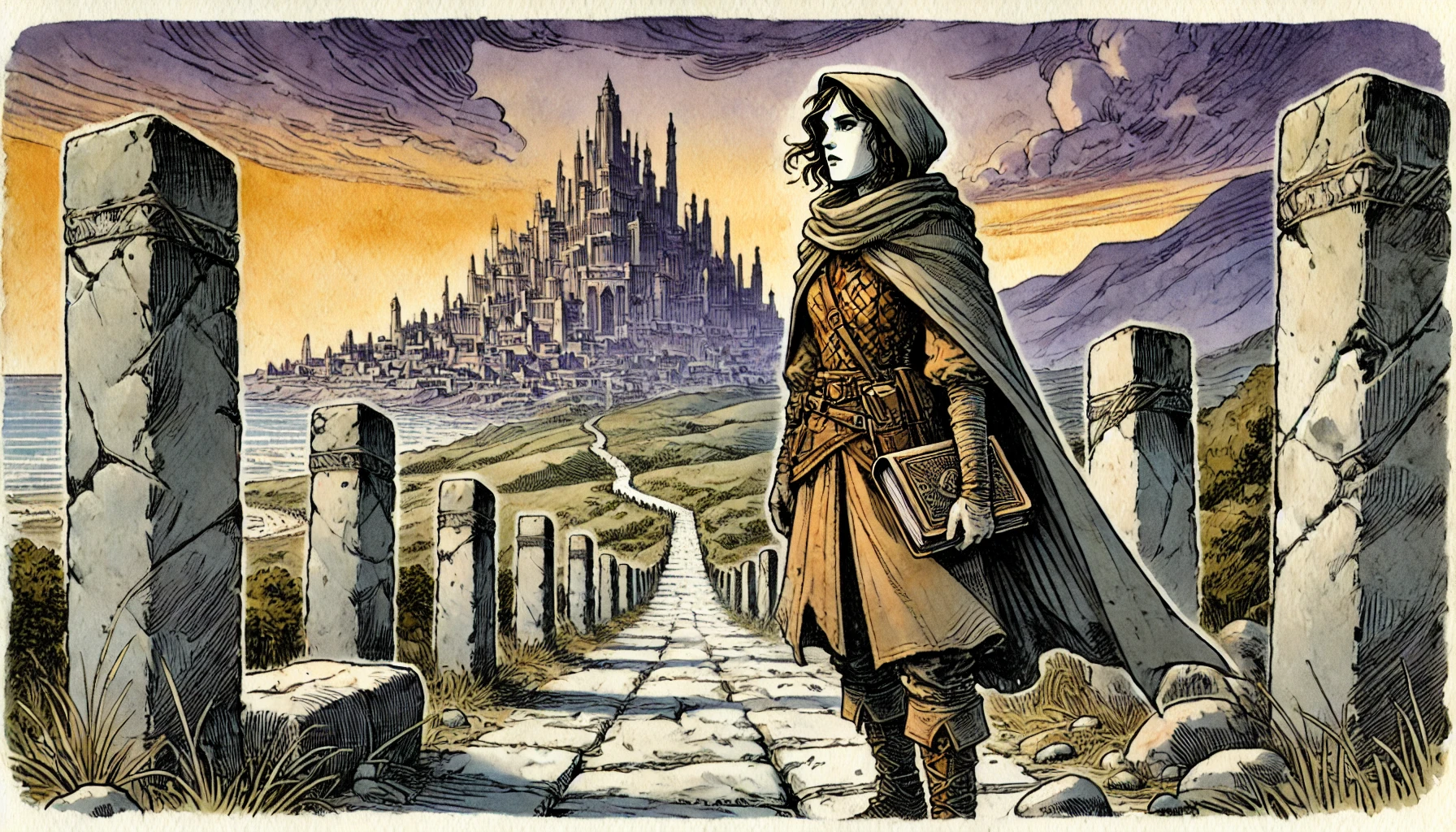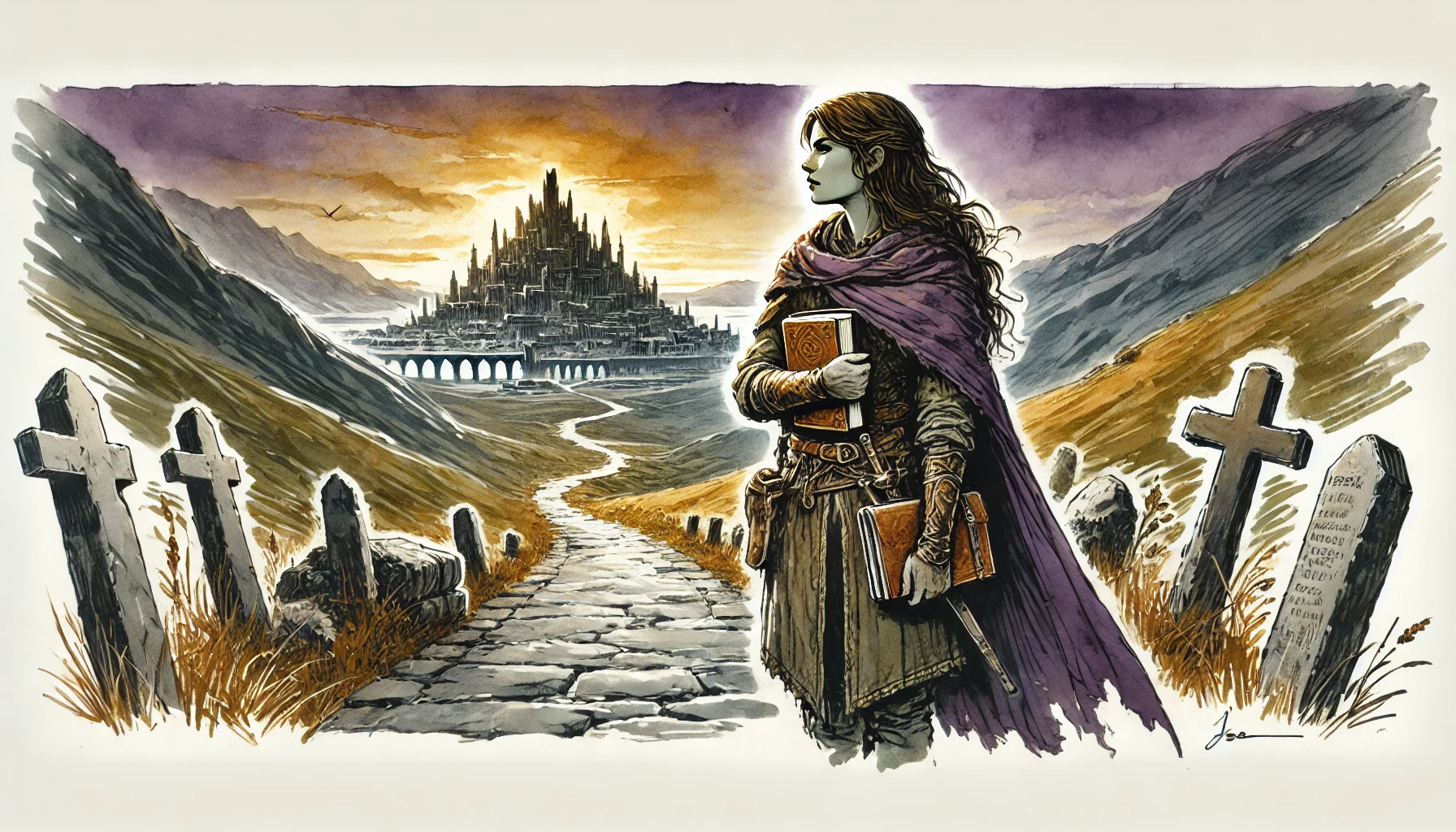In the vibrant world of role-playing games (RPGs), storytelling has undergone a magnificent transformation. Once rooted in simple, straightforward quests, the narratives of RPGs now span grand, immersive epic tales that hold players spellbound. As technology and creative ambition have evolved, so too have the stories that populate these digital realms. From tracing the footsteps of a humble adventurer seeking treasure to embarking on a complex journey filled with moral dilemmas and character evolution, RPGs have become a testament to the power of storytelling in interactive media.
In the early days, the allure of RPGs lay in their straightforwardness. Players knew precisely what they were getting into: a quest to slay a dragon, retrieve a sacred artifact, or rescue a damsel in distress. These basic quests served as the foundation for engagement, offering clear objectives and tangible rewards. Yet, as gamers’ appetites for more profound experiences grew, so did the need for richer, more intricate narratives.
Today, RPGs are not just about completing tasks; they are about weaving narratives that resonate emotionally, challenge intellect, and offer a tapestry of interconnected events that define the player’s experience. The journey from basic quests to epic stories in RPGs is a reflection of the medium’s potential to captivate and inspire, an evolution that continues to shape the gaming world.
The Simple Beginnings of RPG Quests
The origins of RPG narratives can be traced back to an era when simplicity was key. Early RPGs featured quests that were primarily linear and objective-based, akin to traditional tabletop role-playing games. Players were given a clear set of instructions: defeat the villain, find the treasure, or save the kingdom. These straightforward missions were easy to follow, making them accessible to players of all ages and skill levels.
The characteristics of these basic quests were simple yet effective. They provided players with an immediate sense of purpose, driving them to explore game worlds with enthusiasm. The linearity of these quests ensured that players would not stray too far from the intended path, making for a focused and cohesive gameplay experience. Rewards, often in the form of gold or powerful items, were a significant motivation, giving players a sense of accomplishment and progression.
Despite their simplicity, basic quests played a crucial role in engaging players. The clarity of goals and tangible rewards made these early RPGs an exciting venture, laying a solid foundation for the future of narrative development in games.
The Rise of Character-Driven Storytelling
As RPGs began to evolve, so did their narratives. A shift occurred from merely task-oriented gameplay to stories rich with emotional depth and personal connection. Character-driven storytelling took center stage, emphasizing the motivations, backgrounds, and growth of individual characters. Players became more invested in the characters they controlled, as these heroes and heroines were not just avatars but individuals with their own stories to tell.
This evolution allowed for a more immersive experience, as players could explore the intricacies of their characters’ journeys. Character development became a vital component of RPG narratives, encouraging players to connect with the game on a personal level. This shift in focus marked a significant step forward in the realm of storytelling, offering players narratives that were as much about self-discovery as they were about adventure.
As game designers continue to explore the depths of character-driven storytelling, they are encouraged to craft character arcs that resonate deeply with players. By emphasizing personal growth and emotional journeys, RPGs can create unforgettable experiences that linger long after the screen fades to black.
Expanding Worlds and Lore
As RPGs matured, so did their worlds. Game designers began to craft expansive universes filled with detailed lore, offering players a wealth of history and culture to explore. These rich backdrops added layers of depth to the narrative, transforming games into expansive adventures that went beyond the surface level.
World-building became an essential aspect of RPGs, enriching the player experience by providing context and depth to the actions and events within the game. Players were not merely completing quests; they were part of a living, breathing world with its own history, politics, and mysteries. This attention to detail created a level of immersion that drew players deeper into the game.
- Detailed lore documents
- Expansive maps and environments
- Unique cultures and societies
- Historical timelines
- Political systems
- Mythologies and legends
- Diverse ecosystems
- Languages and dialects
- Art and architecture
- Character backstories
- Societal norms and customs
- Economic systems
- Magical or technological advancements
- Factions and alliances
However, the balance between depth of lore and accessibility is crucial. While a richly detailed world can enhance immersion, overwhelming players with too much information can detract from the experience. Designers must tread carefully, ensuring that lore enriches the narrative without becoming a barrier to entry.

The Introduction of Branching Narratives
With the introduction of branching narratives, RPGs entered a new era of storytelling. Player choice became a central element, allowing for multiple outcomes and personalized experiences. This approach provided players with a sense of agency, enabling them to shape the story through their decisions.
Creating branching narratives posed challenges, as developers had to account for various player choices and their potential consequences. However, the rewards were significant, offering players unique experiences and increasing the replayability of games.
| Branching Narrative | Player Choice | Resulting Consequence |
|---|---|---|
| Save the Village | Help villagers | Gain allies, resources |
| Steal the Artifact | Break into museum | Gain wealth, lose reputation |
| Spare the Enemy | Show mercy | Enemy becomes ally |
| Destroy the Bridge | Cut off access | Delay enemies, anger locals |
| Accept the Quest | Take the mission | Unlock new storyline |
| Refuse the Gift | Decline offer | Maintain independence, lose opportunity |
| Negotiate Peace | Diplomatic approach | Avoid conflict, gain trust |
| Betray the Party | Turn on allies | Gain power, lose friends |
| Pursue Romance | Court a character | Develop a personal storyline |
| Investigate the Ruins | Explore depths | Discover hidden secrets |
| Follow the Prophet | Join cult | Gain knowledge, risk corruption |
| Ignore the Warning | Continue unheeded | Face unforeseen danger |
Embracing the unpredictability of player-driven stories offers new avenues for immersion and engagement. Developers are encouraged to explore the depth of player choice, creating narratives that not only entertain but also empower players to become co-authors of their own adventures.
The Role of Narrative Themes and Messages
As RPGs have evolved, so have the themes and messages they convey. Games now tackle complex topics, inviting players to reflect on societal issues, moral dilemmas, and the human condition. Through thoughtful storytelling, RPGs have become a medium for exploring profound themes and provoking thought and reflection.
Narrative themes can inspire change and understanding, allowing players to engage with challenging topics in an interactive and personal way. By incorporating meaningful messages, games have the potential to leave a lasting impact on players, encouraging empathy and awareness in a rapidly changing world.
The power of storytelling in RPGs lies in its ability to inspire and educate. As developers continue to explore the potential of narrative themes, they are encouraged to create stories that challenge perceptions and foster a deeper understanding of the world.
Integration of Technology in Storytelling
Advancements in technology have significantly enhanced storytelling capabilities in RPGs. From stunning graphics and immersive sound design to AI-driven narratives, technology has opened new avenues for creative expression in gaming.
- Real-time rendering
- Motion capture technology
- Advanced AI for NPCs
- Procedural content generation
- Dynamic weather systems
- Virtual reality integration
- Augmented reality features
- High-fidelity audio design
- Cloud-based gaming services
- Realistic physics engines
- Facial recognition software
- Adaptive storytelling algorithms
- Speech recognition and synthesis
As technology continues to evolve, the potential for even more transformative narrative experiences is vast. Future technological trends, such as artificial intelligence and virtual reality, promise to further revolutionize storytelling in RPGs, creating worlds that are more immersive and engaging than ever before.
Cultural Influences on RPG Narratives
Cultural influences play a significant role in shaping RPG narratives, drawing inspiration from mythology, folklore, and contemporary societal issues. This diversity of stories has enriched the gaming landscape, offering players a wide range of narratives that resonate with global audiences.
| Cultural Influence | Corresponding RPG | Narrative Element |
|---|---|---|
| Greek Mythology | “God of War” | Mythical deities, epic battles |
| Japanese Folklore | “Nioh” | Yokai, samurai culture |
| Norse Legends | “Assassin’s Creed Valhalla” | Viking sagas, exploration |
| Native American Stories | “Never Alone” | Indigenous tales, spirits |
| Arthurian Legend | “Kingdom Come: Deliverance” | Knights, chivalry |
| African Mythology | “Aurion: Legacy of the Kori-Odan” | Ancestral spirits, cultural heritage |
| Chinese History | “Dynasty Warriors” | Historical battles, legendary figures |
| Cyberpunk Themes | “Cyberpunk 2077” | Dystopian futures, technology ethics |
| Post-Apocalyptic | “Fallout” | Survival, rebuilding societies |
| Middle Eastern Lore | “Prince of Persia” | Mystical elements, desert landscapes |
| Fairy Tales | “The Witcher” | Magic, moral choices |
| South American Myths | “Mulaka” | Tribal beliefs, shamanism |
By drawing from diverse cultural sources, creators can broaden storytelling horizons, offering players unique perspectives and experiences that reflect the rich tapestry of human culture.
Evolution of the Hero’s Journey
The classic hero’s journey narrative structure has been a staple of RPGs, providing a familiar framework for adventure and growth. Yet, modern games have both adhered to and deviated from this traditional model, creating unique stories that offer fresh takes on timeless themes.
The hero’s journey offers a foundation for storytelling, with its stages of departure, initiation, and return resonating with players across generations. However, the flexibility of this structure allows for innovation, enabling developers to craft narratives that subvert expectations and explore new paths.
Despite its evolution, the hero’s journey remains relevant, offering a blueprint for storytelling that can be adapted and expanded upon in future RPGs. By embracing both tradition and innovation, game designers can create narratives that captivate and inspire.
The Emergence of Collaborative Storytelling
The rise of multiplayer and online RPGs has led to the emergence of collaborative storytelling, where players co-create narratives through shared experiences and interactions. This approach fosters a sense of community and connection, allowing players to shape their stories together.
- Encourage player interaction
- Create shared objectives
- Implement dynamic events
- Foster team-based challenges
- Provide player-driven economies
- Enable custom character creation
- Develop social hubs
- Offer guild and faction systems
- Incorporate player-generated content
- Design scalable difficulty levels
- Implement voice and text communication
- Encourage emergent gameplay
While fostering collaboration, it is essential to maintain narrative coherence. Game designers are encouraged to create systems that facilitate player interaction while ensuring the story remains engaging and impactful.
Final Thoughts on the Evolution of RPG Narratives
The journey from basic quests to epic stories in RPGs reflects the medium’s capacity for innovation and player engagement. As games continue to evolve, storytelling remains at the heart of the experience, offering players narratives that are both entertaining and meaningful.
Game developers are encouraged to embrace the evolving landscape of RPG storytelling, where creativity knows no bounds. By crafting narratives that captivate and inspire, creators can offer players the opportunity to be part of their own epic tales, where every choice matters and every journey is unique.
As the world of RPGs continues to expand, the potential for storytelling grows ever richer. With technology advancing and cultural influences broadening, the future of RPG narratives holds endless possibilities, inviting players to explore new worlds and experience stories that will leave a lasting impact.

